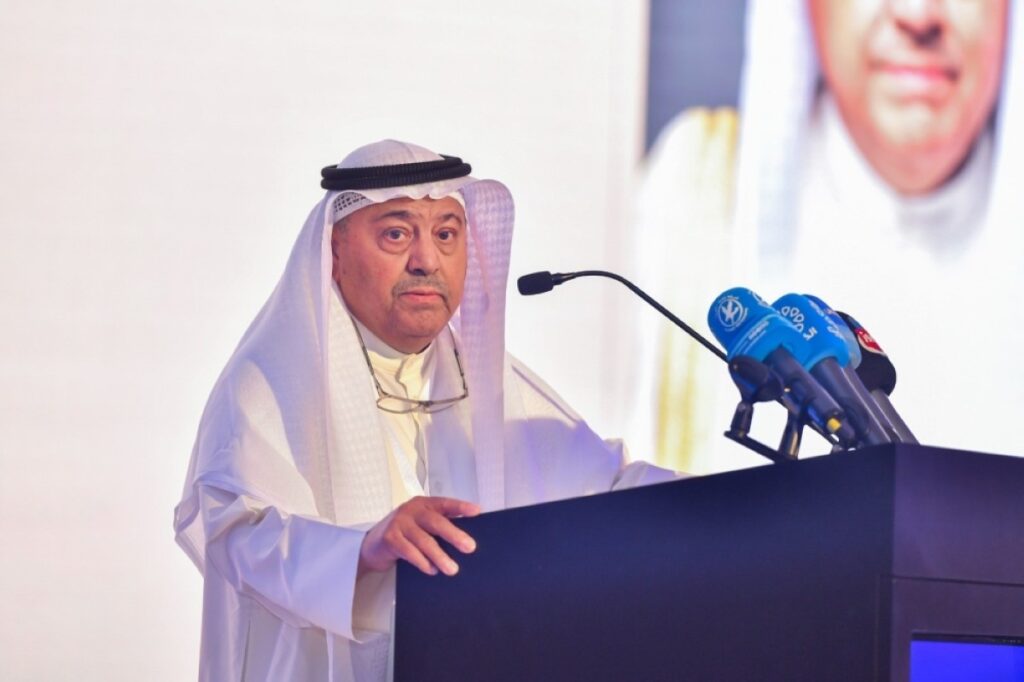KUWAIT: Global energy leaders, experts and young professionals from around 60 countries convened in Kuwait on Wednesday for the 8th Youth Energy Forum and the annual meeting of the World Petroleum Council, where discussions centered on empowering youth, driving innovation and shaping a more sustainable future for the energy industry. The two-day event is organized by Kuwait’s Ministry of Oil and the World Petroleum Council under the theme “Empowering the Future: Connecting Youth with Ideas and Knowledge”.
Opening the forum, Oil Minister Dr Tareq Al-Roumi said Kuwait believes the future of energy can only be built through “genuine global partnerships and international cooperation rooted in innovation, responsibility and sustainability”. “Youth are the heartbeat of our oil industry and the true wealth we depend on to shape the future — not only in Kuwait but worldwide,” Al-Roumi said. He added that the forum’s objectives align with the New Kuwait 2035 vision and the government’s agenda, which prioritizes empowering youth and developing human capital.
Al-Roumi highlighted that Kuwait has trained thousands of young national professionals through specialized programs designed to prepare them for leadership roles and contribute to the oil sector’s growth. He stressed that linking scientific and technological knowledge with environmental and social responsibility is central to Kuwait’s vision for preparing a new generation capable of addressing global energy challenges.
Underscoring Kuwait’s long-standing role in stabilizing global oil markets, Al-Roumi said the country remains “a voice of wisdom and moderation” within OPEC and the OPEC+ alliance, balancing the interests of producers and consumers while ensuring a stable and secure energy supply for sustainable global growth. He also pointed to Kuwait’s leadership in regional and international energy cooperation, noting that the country has hosted the headquarters of the Arab Energy Organization (formerly OAPEC) since 1968 and continues to support joint strategies in oil, gas and renewable energy.
Kuwait’s commitment to smart and sustainable operations, he added, is reflected in major initiatives such as Kuwait Oil Company’s Innovation Center for Artificial Intelligence, developed in partnership with Microsoft, and Kuwait National Petroleum Company’s digital transformation projects, which include automation and integrated operations.

OPEC Secretary-General Haitham Al-Ghais
Speaking at the forum, OPEC Secretary-General Haitham Al-Ghais stressed that the “future of the oil industry will be led by youth”, emphasizing the importance of empowering and investing in young talent to drive the sector toward greater prosperity and sustainability. “Here in Kuwait, it was the youth of yesterday who built the foundations of this industry,” Al-Ghais said, recalling milestones such as the granting of the first oil concession in 1934, the discovery of the Burgan field in 1938 and Kuwait’s first oil export in 1946.
Drawing from his career, Al-Ghais said his experience — from leading oil marketing teams in Kuwait and abroad to serving as OPEC Secretary-General — has reinforced his belief in developing young professionals. “We need ambitious, dedicated youth to innovate, excel and lead the energy sector into the future,” he said. Citing OPEC’s World Oil Outlook 2025, Al-Ghais projected that global energy demand will rise by 23 percent by 2050, with oil demand reaching 123 million barrels per day, maintaining around 30 percent of the global energy mix.
He estimated that the oil sector will require about $18.2 trillion in investments by 2050. He also highlighted OPEC members’ leadership, particularly Kuwait’s, in sustainability through investments in carbon capture, utilization and storage (CCUS) technologies and direct air capture systems, and expanding renewable energy projects like Al-Shagaya. “The future of energy is not about excluding oil and gas,” Al-Ghais said. “It’s about integrating all energy sources — oil, gas and renewables — in a balanced, inclusive approach that meets the world’s needs.”
Oil Ministry Undersecretary Sheikh Dr Nimer Al-Malik Al-Sabah said hosting the forum reflects Kuwait’s strong standing in the global oil industry and its commitment to promoting international dialogue and youth participation in shaping the energy future. He noted that the ministry’s guiding motto — “National talents are the oil of the future” — serves as a strategic framework for developing young professionals through advanced training programs in collaboration with major international companies and research centers.
Jassim Al-Shirawi, Secretary-General of the International Energy Forum, said investing in human capital is the best guarantee for sustaining resources, calling youth “true partners in shaping the future of global energy”. He congratulated Kuwait on its recent offshore natural gas discovery at the Jazza field, describing it as a historic milestone that will strengthen both regional and global energy security.
Meanwhile, Pedro Miras, President of the World Petroleum Council, emphasized the importance of empowering young professionals and increasing women’s participation in the global energy workforce, describing them as key drivers of innovation and sustainability. He also stressed the need to balance sustainability, affordability and energy security — the “energy trilemma” — through a comprehensive approach that embraces all energy sources and technologies to ensure a fair and inclusive energy transition. – KUNA

